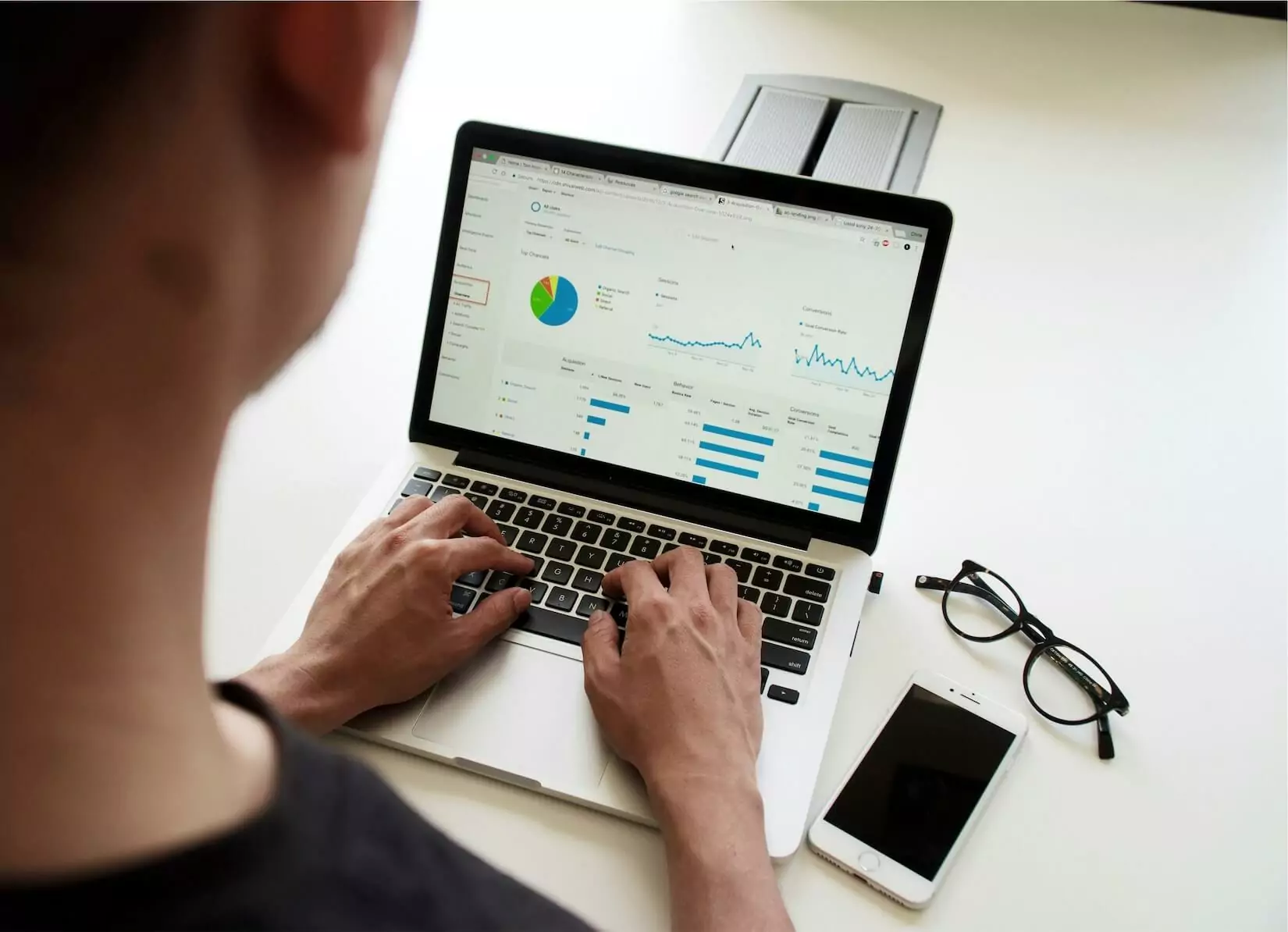There is a vast difference between bookkeepers and accountants. The main reason for the growing disparity between bookkeepers and accountants is because of data analytics. Before data analytics, bookkeepers and accountants alike had to enter figures manually, leaving room for human error.
With four types of data analytics, accountants can create dependable reports, diagnose issues, describe potential solutions, and implement operations that increase the bottom line. In this article, we answer questions surrounding the benefits of data analysis for accountants. We also uncover how accountants can use data analytics to improve their bottom line, reduce operational inefficiency, and uncover funding opportunities.
At Fully Accountable, we believe you deserve a financial professional who understands how to incorporate the correct data analytics into your business. Our team of fractional accountants can help you make the right decisions within your organization so you have a dependable infrastructure in place to expand with confidence. Continue reading to learn more about why your organization needs accountants with data analytics skills.
Why Is Data Analytics Important to Accountants?
You’ve likely heard the craze surrounding data analytics. But what do accountants and data analytics have in common? Data analytics provide valuable insights to accountants who add tangible value to their organization. This tangible value comes from accountants’ ability to create and implement financial processes based on data. They can utilize the tools that lead to long-term success.
Accountants can also uncover the easiest tasks to automate using data analytics. Instead of blindly completing bookkeeping tasks, accountants have data in their hands to separate simple tasks from those that require more deliberation. This results in fewer errors and more precise long-term directives.
Accountants can analyze tax compliance more completely, especially in relation to investments and ongoing capital procurement. Because accountants have access to more reliable data, they can also expedite investment decisions. In business, the early bird always gets the worm.
Because accountants have insight and tangible evidence supporting investment opportunities, they can expand faster with more security.
What Are the Different Types of Data Analytics?
Descriptive Analytics
Descriptive analytics create the foundation of reports. Business Intelligence tools and dashboards can’t exist without descriptive analytics. These tools address the basic questions surrounding data analytics. You can garner insight from this data and compile them into monthly reports. You can also use these metrics to generate specific reports based on the data you analyze.
Descriptive analytics, then, serves two purposes. The first is to automate the most critical aspects of your reporting so you don’t worry about human error interfering with your processes. The second is the spontaneous reporting that allows you to communicate more complex initiatives. The two types of reports that descriptive analytics create are formally referred to as ad hoc reporting and canned reporting.
Canned reports are reports that contain specific, repeatable information. An example of this type of report would be a monthly report containing the same metrics.
Ad hoc reports feature metrics that shift. The accountant looks at a given data set and infer conclusions based on their analysis. These types of reports contain more in-depth analysis about more specific data queries. The metrics contained in these reports are often more specific than canned reports and you likely won’t have to view this type of report a second time.
Diagnostic Analytics
Diagnostic reports don’t make future predictions. They analyze data from the past and diagnose issues in the present. Data mining, data discovery, and correlations are often used to break data into more specific categories. These methods can be used to uncover information that can qualify candidates for new positions.
Predictive Analytics
Predictive analytics is one of the most commonly used categories of data analytics. You can use these metrics to identify trends, correlations, causes, and effects
The category can be further broken down into predictive modeling and statistical modeling; however, it’s important to know that the two go hand in hand. Conversion rates and predictive modeling can be used to target multiple audiences and provide a reliable revenue stream.
Prescriptive Analytics
AI and big data combine to predict various outcomes and identify the actions your company needs to take. You can break these analytics into further optimizations and random testing. Prescriptive analytics provide simulations based on a proposed solution. They help companies devise strategies so they can see the best opportunities to solve issues.
What Skills Do Today’s Accountants Need?
Becoming a successful accountant who specializes in data analysis requires both technical and technological skills in addition to critical thinking ability. Understanding some code languages is also helpful so you can create custom algorithms and data models you can use with larger sets of data.
Additionally, accountants need to be able to communicate initiatives and analysis with board members. They need strong presentation skills and they should be able to clearly communicate insights in concise, actionable manners.
Data Analytics Creates Automation and Autonomy
With any manual process, there comes human error. Whether through migration, misadoption, or simple data entry mistakes, automation remedies all of these potential errors. Traditional analytics solutions and processes typically cause delays so that executives can’t make quick, confident, and informed decisions. Companies might collect data from multiple sources and require corporate departments to create, extract, transform, and load the data to multiple interfaces. Combined, these tasks leave a substantial room for error.
With traditional solutions and processes, you will likely need an IT expert in analytics to conduct the analysis. Automating analytics processes and migrating to the cloud can be extremely beneficial for businesses of all sizes. However, this comes with a caveat: Businesses must be prepared for an effective migration that doesn’t leave things to chance. Migrations can be time consuming and pose the risk of lost data.
Automation
Outside of the risks of migration, modern analytics solutions give you the chance to automate nearly everything. You can simply identify a few parameters you want to automate, determine which model you want to use, and implement the automations on the platform of your choice.You can also input data from multiple applications, platforms, and clouds. Gathering, cleaning, preparing, and analyzing this data can be done immediately, eliminating the risk of human error and saving valuable time.
How Do Data Analytics Transform Accounting?
Data analytics helps accountants in the following areas:
- Performance Evaluation: Business performance should be evaluated with predetermined metrics and accountants might look at revenue data, quarterly goal performance, or production numbers.
- Mitigate Risk: Data analytics decrease risks and they can be uncovered in real-time. Whether you need funding, process management, or investment opportunities, your accountant can uncover risks in real-time and create actions to thwart them.
- Understand Behaviors: Track and review your consumer, departmental, and individual behaviors as well as productivity. These reviews can help you make business decisions and growth plans.
- Business Plans: Detailed understanding of past and present business patterns through analytics becomes easier. Accountants study historical sales numbers, employee retention patterns, organizational spending, and equipment life cycles to determine the overall function of your business.
- Business Improvements: When a department underperforms, data analytics identify the issues and how you can improve. This leads to comprehensive strategies that increase your bottom line. Your accountant can review sales forecasts, historical sales performances, and operations costs to ensure the right procedures are in place.
- Find Opportunities- Business analytics provide opportunities so you can develop an advantage while looking at current trends. Accountants might include operational directives and dissect consumers and market trends to uncover new opportunities.
- Maximized Profits: With clear insight into what data analytics provide, companies make decisions that improve their bottom line. Accountants can look at a number of data points, such as past purchasing behaviors, market trends, and operational inefficiencies to increase profit margin.
Bottom Line- Why Do Accountants Need Data Analytics?
Accountants need data analytics because it gives them ample resources to maximize efficiency, simplify compliance, and increase your company’s bottom line. The days of accountants and numbers crunchers are over.
The new accountant will understand how to utilize data analytics to their advantage not only for diagnostic analytics, but also predictive, prescriptive, and descriptive analytics. Each of these have a place in your business and you can benefit from all of them. You also eliminate the possibility of human error.
At Fully Accountable, we believe you deserve access to the most advanced business intelligence tools and analytics so you can position your company in the right direction. Our team of fractionalized accountants provide real-time reporting and actionable insights into how you can improve your bottom line and stay on top in a rapidly changing business environment.
Contact us today to learn more about why accountants need data analytics.
Fully Accountable is an outsourced accounting and fractional CFO firm that specializes in ecommerce accounting for online businesses. As a Inc 5000 fastest growing companies award winner, our diverse team of accountants, bookkeepers and CFOs can help you improve your cashflow and effectively manage and grow your bottom line.





